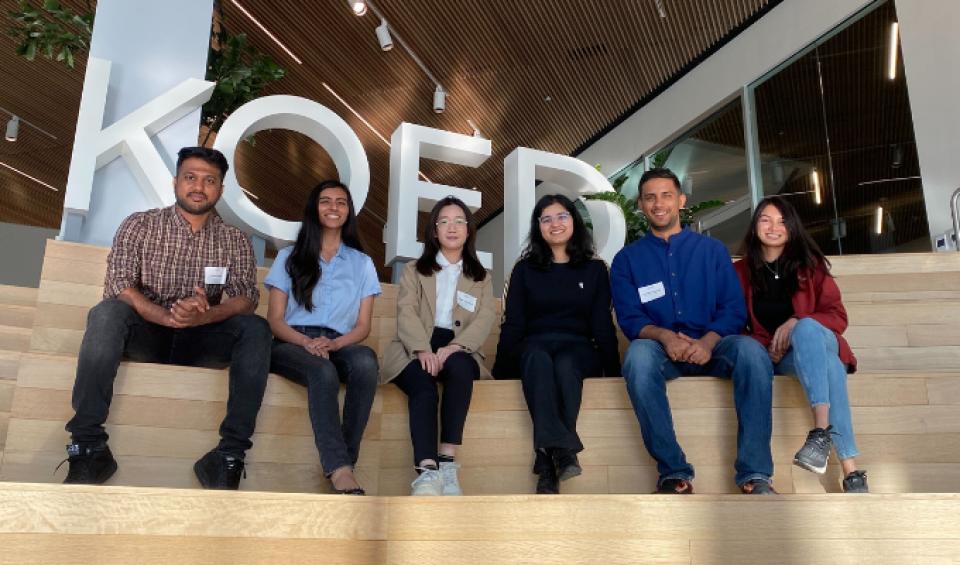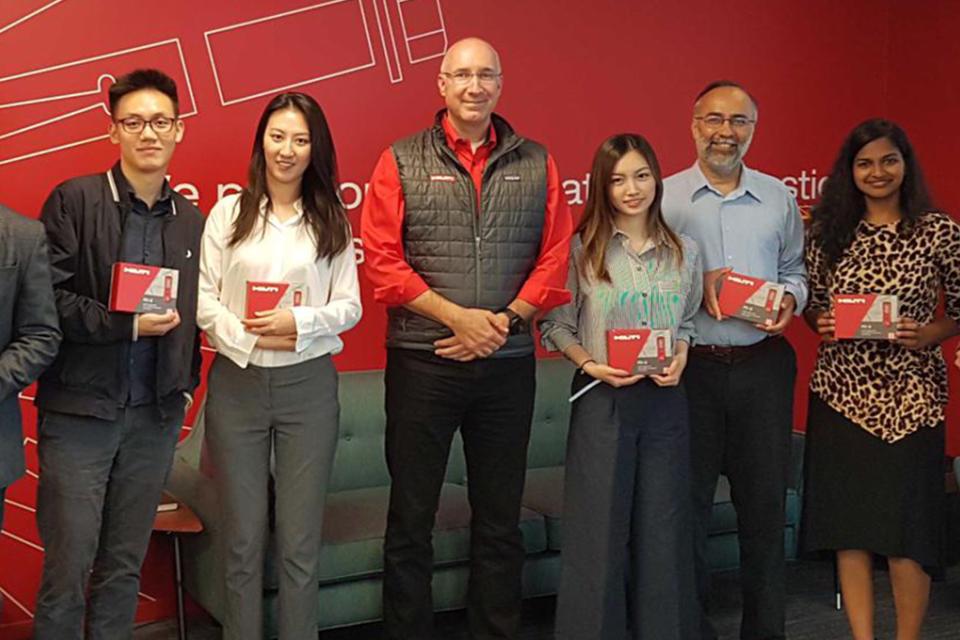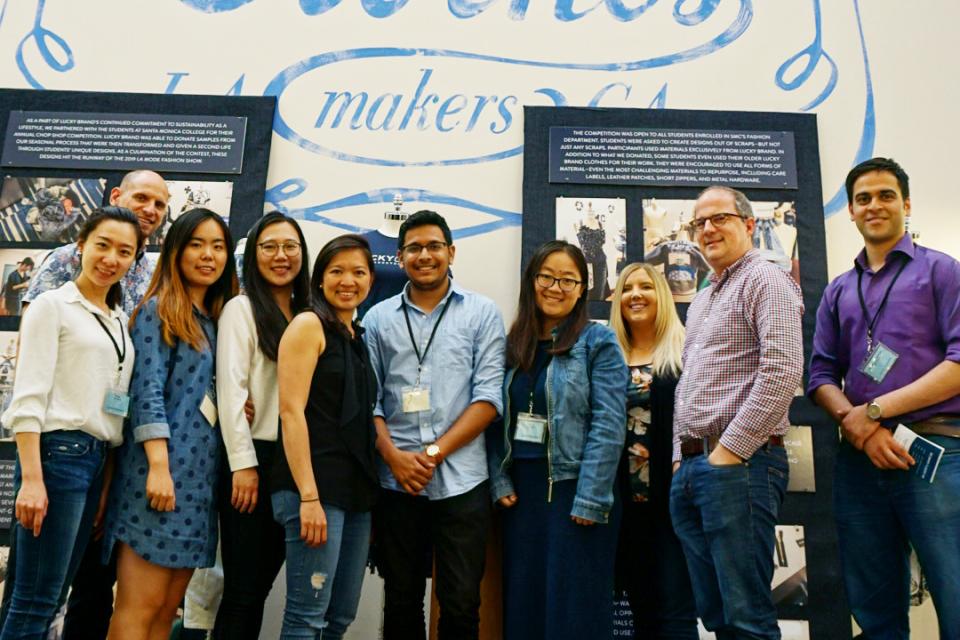UC Davis MSBA Edge: Practicum Projects
Presented by MSBA Director of Analytics Projects Carrie Beam

MSBA Director of Analytics Projects Carrie Beam gives an inside look to practicum projects, from enhancing marketing strategies to revolutionizing customer experience and beyond. It's an opportunity to connect with our industry partners, and see the potential career opportunities and professional networks available to you.
Webinar Transcript
MSBA Director of Analytics Projects Carrie Beam
I'm going to talk you through three items here about practicum.
The first one is I'm just gonna walk you through the innards of some of these projects. Like, what did the students on these projects do?
The next thing I'm going to do is walk you through sort of if you were a student, what would your practicum experience be like?
And then the last one is I'll tell you how I've seen that practicum experience help people on the job hunting front.
First one, these are just a few of the private income partners that we work with. We've worked with a wide variety of things from nonprofits to teeny weeny startups where the spouse just let them out of the garage all the way up to Fortune 500 companies. And every single one of them has something different to offer.
For the American Eagle, that is an American clothing company. That was an optimization project. The American Eagle had some clothes of certain sizes in certain stores, and they needed to figure out optimization prescriptive analytics with returns.
How should they route different things between different stores? The students were running Python code, running an industrial strength optimization algorithm.
Engage3 does pricing. For example, if you go to a gas station, the candy bar there might be 99 cents. It's not an accident that it's 99 cents instead of a dollar. Somebody's done a lot of pricing on that. And sometimes... If people spend more on milk, they'll have less to spend on candy.
Engage3 has a huge amount of data around pricing sensitivity. And this was a forecasting, a pre-script or predictive analytics problem. So they were trying to build different models to try to predict changes in price based on past data.
People who'd never programmed in Python before were all of a sudden running hundreds and hundreds of lines of code.
We have two practicum projects at UC Davis Health this year.
One of them is at the Pulmonary Critical Care Clinic. This is where you go if you have trouble breathing. They're having a huge problem with late arrivals. Patients are arriving too late for their appointment. And this causes problems in two ways. First of all, it's very stressful on the staff and the clinic because now these people have missed their appointments.
And then secondarily, it's very stressful on the patient because maybe the asthma doesn't get treated and they end up going to the emergency room three days later.
The pulmonary critical care team is using predictive analytics and tableau visualization to identify characteristics of who is most likely to be late for their appointment and looking at putting those people in appointment slots where they are more likely to be on time.
The tagline of that one is you can breathe easy at the Pulmonary Critical Care Clinic.
We're also doing a project for the UC Davis Health Pharmacy implementing a large dashboard. The oncology clinic is cancer care and oncology drugs can be up to $10,000 per dose. And so because of that, it's very important to not have too much because it will go bad.
But you also wanna make sure that you have enough so if a patient needs it. And so our students are working with the pharmacy at UC Davis Health to ensure optimal stocking levels. The Department of Healthcare Services is California's public health agency with data and managing services. It is our winner. They have over 100 million rows of public facing data, and our students are helping them refactor that database and clean the data up so they can answer good healthcare questions.
One of the challenges they had is COVID data was kept by the quarter, by one geographic region, and by the month by another. Our students have put it together so they can actually put together trends.
And then on the bottom right, Angel Flight West. This is one of, well, all of nonprofits are our favorite, but Angel Flight West is one of our favorite nonprofits. They match patients who need chemotherapy and other very important life-saving medical treatment with private planes and private pilots who will volunteer to take them.
For example, if you live in rural Montana, which is a... state in the middle of the United States with a lot of mountains and not very many people, and you might be ill and need treatment in Seattle, you need a private plane to fly you there.
Angel Flight West might help you match somebody with somebody from Los Angeles to drive you to your appointment and then with somebody else a couple days later to drive you to fly you from your appointment. Our students have worked with Angel Flight West for about five years now and most recently they worked on a matching supply and demand to try to match which pilots got assigned to which patients in need.
So you could see pretty much anything you want to do from education to optimization. We've got it. We have a couple of projects this year where they're implementing chatbots in one form or another. So you're having a large language model. Anybody have a question about any of those?
Question from Participant
Hi, Professor. So, I mean, I had a question. So how do we decide? I mean, is it the companies that select us based on our profile for these practicum projects or do we choose which company do we want to work with?
Carrie Beam
That's my total favorite question. When you come in, you will be given project descriptions of all of the projects that are available and you're asked to express your preference. And then on the back end, I run a linear programming algorithm. You would expect nothing less.
I have a PhD in operations research. That's what we do for fun. And so I would run a linear programming algorithm to optimally assign students to projects. So we attempt to get you a project of your highest preference while still realizing we have constraints, like no more than six students per project. And if a certain project needs a certain skillset, we make sure that's good staff there. Thank you.
Yeah. And sometimes people ask, is it okay if I like more than one? Yes.
If we have 20 projects and 15 of them are to your liking, you could put a yes on all 15 of those. It significantly increases the chances that you'll get staffed to a project that's really what you like. All right.
Another question I get is, what is a week in my life if I were a practicum student?
Well... One time, one of you, let's say you're in a team of five, one of you is the project manager. So you're getting real project management experience. Somebody's the PM for the fall, somebody else for the winter, somebody else for the spring. You would have a weekly meeting with your industry partner. So for example, if you were on the Qualcomm project, you would have a weekly meeting with the Qualcomm people, or if you were on game credit, you would have a weekly meeting with them. without me or Dr. Josue Martinez, our other director.
So you were getting direct industry experience working with them. You would separately have a second weekly meeting with me where you would learn how to use Asana, a leading project management software to run through tasks. We use Agile project management. So we do Scrum, who did what last week, what's on the critical path, what kind of blockers do we have? You also really work hard.
We teach and you learn conflict management and you learn job skills. and you learn a lot of practice presenting. And in fact, if any of you are able to come to our open house, I'll put that in the chat, you can see some of our current students practicing their public speaking skills, talking about their projects.
And the last thing that's so great about practicum is its experiential learning. Instead of watching me lecture about project planning and then having to take a quiz on it, you actually have to plan the project and then you have to live the plan. So if there was a mistake made in the planner, if the plan needs to be changed, you learn about that real time.
Some things that past practicum students have told me when they were job interviewing is they said, "I had a job interview, tell me, ask me, tell me about an interpersonal conflict and how you resolved it."
And they all said, "Oh, we have great vignettes we can tell about how we established a team charter, how we did communication, how we worked on positive expectations setting."
We also had some of our project practicum teams work on business development. Some of them needed to do industry interviews or informational interviews. In the context of that, they were talking to the business community outside of us and outside of our alumni. And one of our teams from last year actually brought in a new practicum partner for us. So that counts as great business development skills.
And finally, you learn how to learn. Some of our practicum projects this year had to do some linear programming and they didn't know how, so they had to learn it. Another team, they had to do industry, business to business, consumer research. They had no idea how to go about doing cold calls or compiling a list, but they did that.
I think I'll stop with that. So I will say practicum gives you real life internship experience on some fantastic projects, a great bonding experience. It gives you real work experience and plus it's also just super fun.


